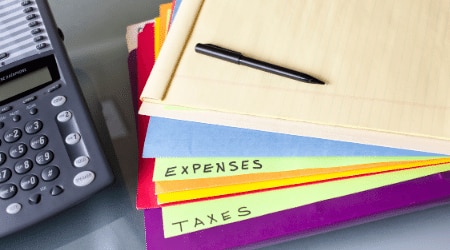As a business, you’re liable to pay corporate income tax, which is calculated based on your total income over the tax period. Under the traditional company income tax system for small business corporations, the threshold for paying income tax starts at R79,001, although rates vary depending on a number of factors, including:
- Your annual turnover
- Whether you’re based in South Africa, or have a branch in the country
- How many employees you have
All companies registered under the ordinary small business tax system are required to pay tax using the provisional tax method, which spreads out the tax liability over the assessment period. This system requires at least two amounts to be paid in advance, and calculating what you owe is crucial to making sure you’re not left with a large bill at the end of the year.
However, SARS has also introduced an additional tax type for qualifying small businesses. Known as turnover tax , this is a simplified system aimed at making it easier for micro businesses to meet their tax obligations. Currently, the threshold for tax under turnover tax is R335,001, making it an attractive option for certain businesses.



